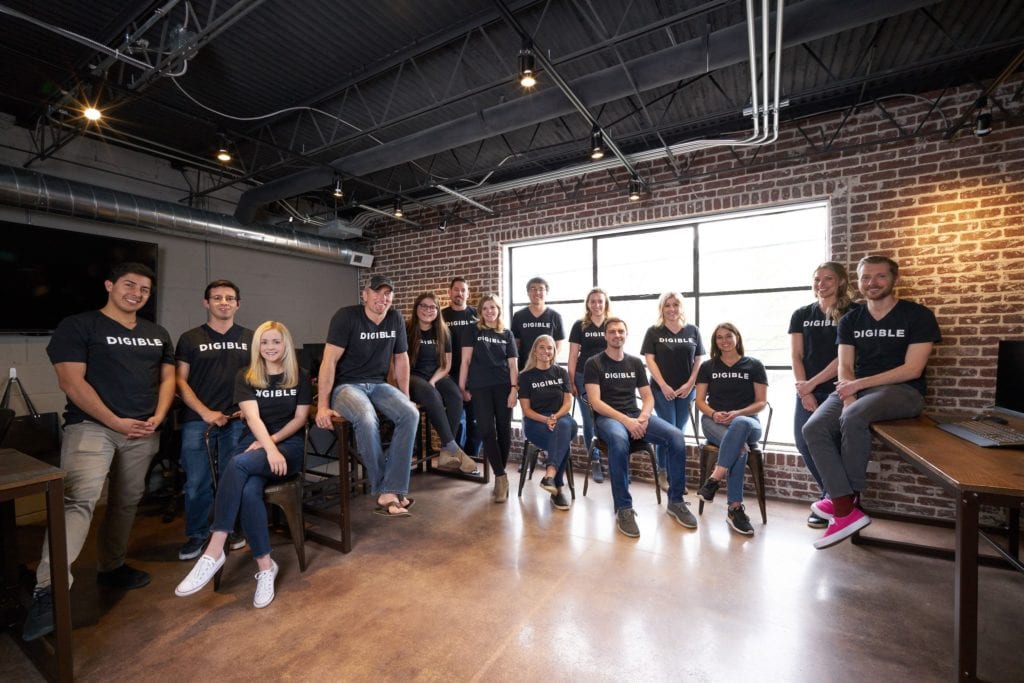Denver-based Digible, Inc., harnesses data to transform multifamily apartment marketing
Got data? Great. It’s what you do with it next that matters, says Amy Phillips, teaching professor in the Department of Business Information & Analytics at the Daniels College of Business.
“All the data in the world doesn’t do you any good unless you can turn it into information, and it becomes information when you answer a question,” said Phillips. “Many businesses are sitting on enormous amounts of data, and they don’t even know where to begin—that’s where storytelling comes in.”
A simple question might be: “What do my customers want, and when do they want it?” Plenty of technologies on the market can answer that, but rarely do they explain the “why,” said Phillips. To get to that answer, she begins by doing a deeper dive—sifting through information to find the narrative—or the why.
Still another barrier to using data to its full potential is getting buy-in at all levels—especially the top.
“The current generation of leaders was not raised on data,” said Daniels Business Information and Analytics department Professor of the Practice Philip Beaver. “We still have a lot of business leaders out there who have been making decisions based on their gut.”
That’s not a problem for the co-founders of Denver-based digital marketing firm, Digible, Inc. They recognized the power of data from the get-go and are using it to transform how and where their multifamily apartment clients spend their marketing dollars.

Photo courtesy Digible
CEO Reid Wicoff and President David Staley co-founded the company nearly three years ago after seeing a huge need for data-driven decision-making in the multifamily apartment space. Starting with three employees, Digible has since grown to 23, including six software engineers and five data engineers. In the early stages, Wicoff and Staley met with Beaver for advice on staff training, data storage and data architecture.
For years, the multifamily apartment industry had relied on printed apartment directories to reach customers, until moving the directories online. Now, that approach is quickly going by the wayside too, said Wicoff.
“In the last five years, things have changed dramatically with this tsunami of marketing and advertising technology hitting this industry,” he said. “Now they’re trying to figure out which platforms they should trust.”
Digible’s technology platform, “Fiona,” gathers information from multiple data points, including: supply and demand; inventory; average rent; digital marketing; traffic flow; census and satellite data; and click stream data (from the start of when potential customers begin their apartment search online to when they fill out a form to take a tour), among others. Using both machine learning and artificial intelligence (AI), the platform makes specific marketing recommendations.
“Fiona takes all the data sets, and in a matter of seconds reverse engineers how much to spend on marketing a property and where to spend it,” said Wicoff.
He adds that while many companies have business intelligence tools, Digible’s technology is unique in the market for pairing natural language with them.
“Fiona speaks in plain English about data and why you should spend your marketing dollars in a certain way, such as on Google or Apartments.com,” he said. “We also incorporate lots of data visualization to help bring each recommendation to life.”
To further enhance their data storytelling capabilities, the company also recently added a video editor to its team. He focuses on creating videos that explain data in quick, compelling ways.
For one of their clients, Tennessee-based property management company Freeman Webb, “Fiona” made recommendations on how and where to spend advertising dollars for 18 of its properties, increasing its leasing velocity by three times.
“What used to take hours upon days upon weeks for them now is done in mere seconds with this amazing tool costing them $99 a month, but is equivalent to hiring a stable of six-figure engineers and marketing analysts,” Wicoff added.
The industry has recognized Digible as well, bestowing it with a top technology award at the 2018 Multifamily Technology and Entrepreneurship Conference in San Francisco. The young company also became a Google Premier Partner, enabling their staff to access Google engineers for support.
The company’s leadership team also incorporates data into many of their internal functions, such as recruiting and management, and plans to eventually use AI to automate processes such as media buying. Freeing up the extensive time involved with that task “will enable our people to focus more on the art and strategy sides of marketing,” said Digible Chief Strategy Officer David Lerchbacher.
How to Become More Data-Driven
Becoming data-driven in this economy is more a necessity than a choice, Wicoff emphasized. Leadership, he added, needs to acknowledge: “If we can’t answer these questions through data, then we’re not a modern organization, our clients will see through it, and we’ll lose business.”
Wicoff and Lerchbacher have some tips for becoming a more data-driven organization.
“You need to determine what your data is, how to organize and store it and then what talent you have to put around it,” said Lerchbacher. “It’s important to have strong programmers, data and software engineers and someone to articulate the real-world challenges you’re solving with data.”
Wicoff recommends bubble testing and micro case studies to demonstrate the power and value of data to key decision makers. That way, initial investments are relatively minimal.
“You isolate and see what you can do with specific data sets, and almost inevitably you’ll see improvements,” he said. “More people will latch on and become a part of the process, and those early wins will get everyone on board.”
To learn more about using data to make strategic decisions, register for Beaver’s Building a Data Driven Organization workshop Feb. 3–5, 2020.
To learn more about data visualization and storytelling, register for Phillips’ three-part Executive Education workshop, Becoming a Visual Organization: The Power of Data Storytelling, April 23, 30, & May 7, 2020.
